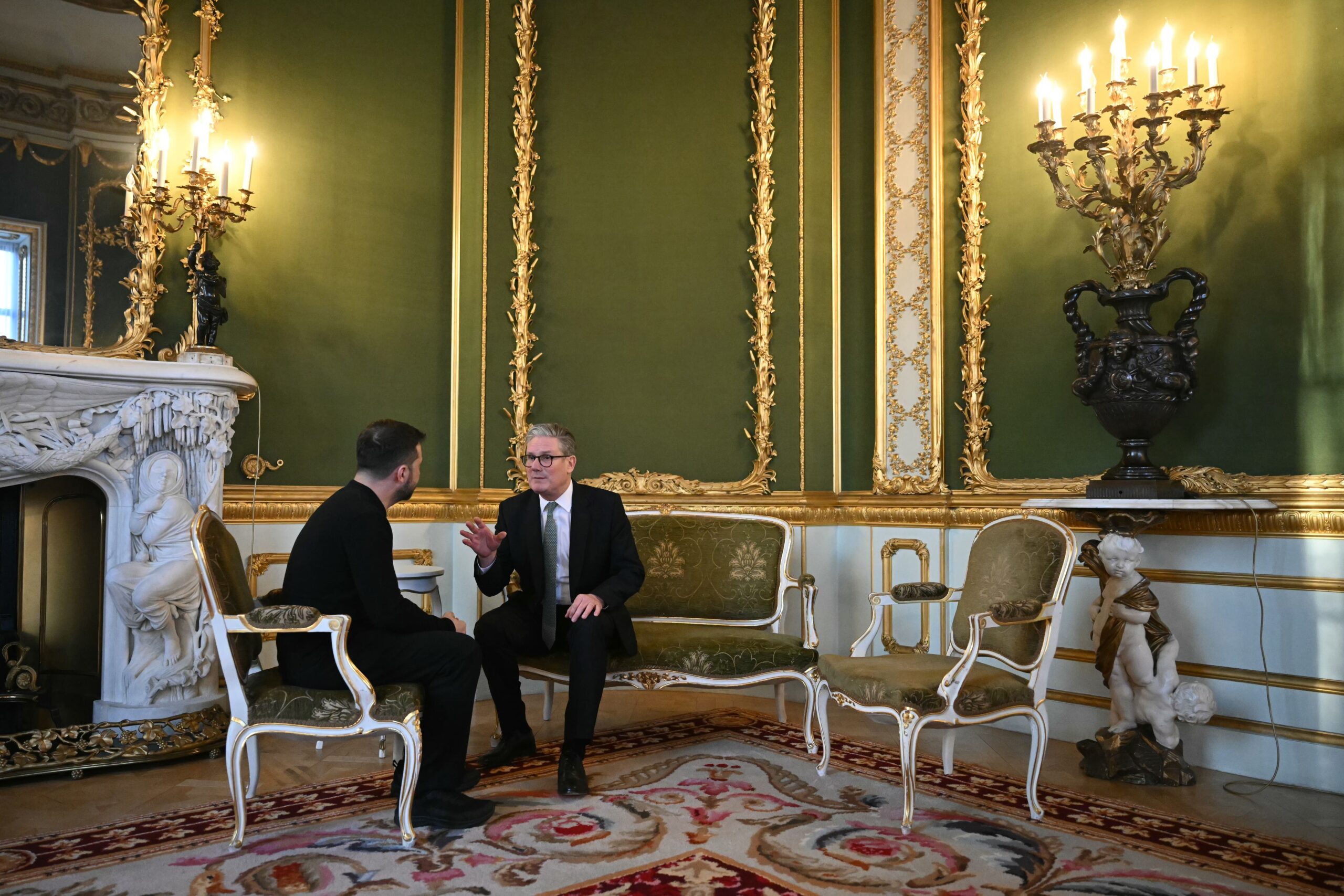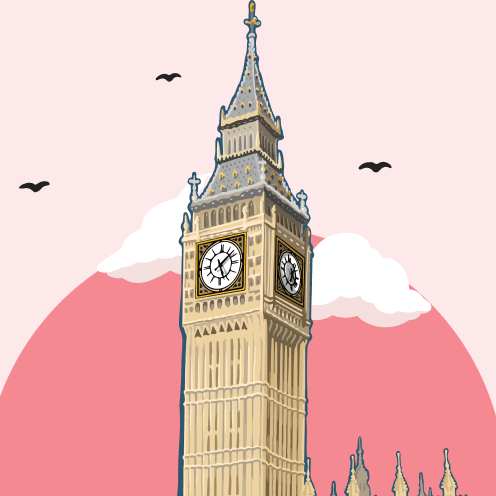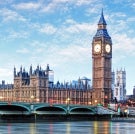Vladimir Putin’s forces launched a major air raid on energy infrastructure in Ukraine’s Slovyansk city late last night, just hours after the Russian leader told Donald Trump he would pause such attacks.
Military officials told the Kyiv Post that Russia’s airstrikes left the entire city of 100,000 people without electricity.
Mr Putin had told Mr Trump in a phone call earlier on Tuesday that he would temporarily stop attacking Ukrainian energy facilities and claimed to have issued orders along these lines.
During the call the Russian leader refused to back a full 30-day ceasefire that the US hoped would be the first step towards a permanent peace deal.
Kyiv confirmed it was ready to support the watered-down agreement from Moscow and not hit Russia’s energy grid for about a month.
After the call, US envoy Steve Witkoff told Fox News that a new round of talks with Russia will take place this Sunday in Jeddah, Saudi Arabia. “The devil is in the details,” he said, adding: “We’ve got to figure out those details.”
Starmer spoke with Zelensky to discuss Trump-Putin talks, Downing St says
Sir Keir Starmer has spoken with Volodymyr Zelensky to discuss “progress President Trump had made towards a ceasefire in talks with Russia”, Downing Street said on Tuesday evening.
Giving a readout of a call between the UK prime minister and the Ukrainian president, a Downing Street spokeswoman said: “The prime minister spoke to President Zelensky this evening.
“They discussed progress President Trump had made towards a ceasefire in talks with Russia.
“President Zelensky updated on the situation on the front line and the prime minister reiterated the UK’s unwavering support.”
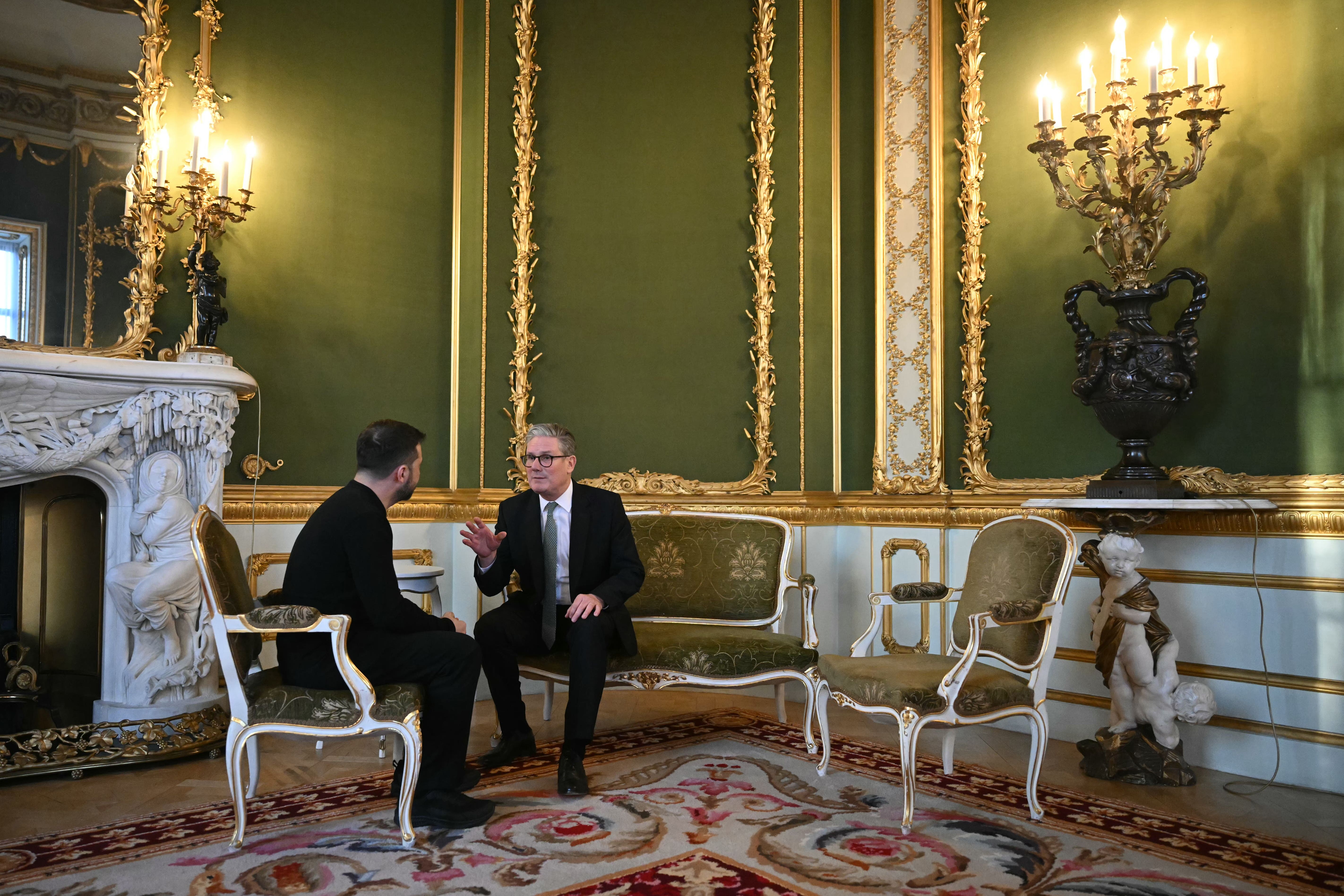
Reminder: What happened in the Trump-Putin call yesterday?
International editor Chris Stevenson recaps yesterday’s momentous phone call between the US and Russian presidents:
A high-stakes call between Donald Trump and Vladimir Putin to try and agree a ceasefire that would help bring an end to the invasion of Ukraine finished with the Russian leader agreeing to halt strikes on Ukraine’s energy grid for 30 days – but without the full battlefield truce that the US and Kyiv have been seeking.
The Kremlin said Putin had given an immediate order to Russia’s military to stop such strikes in the wake of the 90-minute call – which was the first time the two leaders have spoken since Ukraine agreed to a 30-day ceasefire proposal during talks with the US in Saudi Arabia last week.
Putin has claimed he agrees with the idea of a ceasefire in principle, but the Kremlin said during the call with Mr Trump that he demanded any broader ceasefire would need to include stopping the mobilisation of Ukrainians and rearming of its armed forces, including halting Western military aid and intelligence support.
After the call, Mr Trump called it “very good and productive”. Writing on his Truth Social platform, he said that the two leaders “came to an understanding that we will be working quickly to have a complete ceasefire and, ultimately, an END to this very horrible War between Russia and Ukraine”.
Analysis | History tells us Trump’s current stance on Russia won’t end the war. Here’s why
Since returning to the White House in 2025, US President Donald Trump has dramatically reshaped US policy toward Russia, adopting a markedly softer stance on Vladimir Putin and the ongoing war in Ukraine. This approach has included cutting military aid to Ukraine, and pressuring Kyiv to accept unfavourable terms to end the fighting.
Trump is also weakening America’s negotiating position by repeatedly and prematurely signalling the concessions the US is willing to make.
Historically, Russia has responded to strength, not appeasement. As US diplomat and historian George Kennan famously stated in his 1946 Long Telegram, the Soviet Union understood only the language of power. He was proven right – throughout and since the Cold War, Western concessions have often invigorated rather than calmed Russian aggression.
Christo Atanasov Kostov writes:
In pictures: Kyiv’s air defences scour night sky for Russian drones
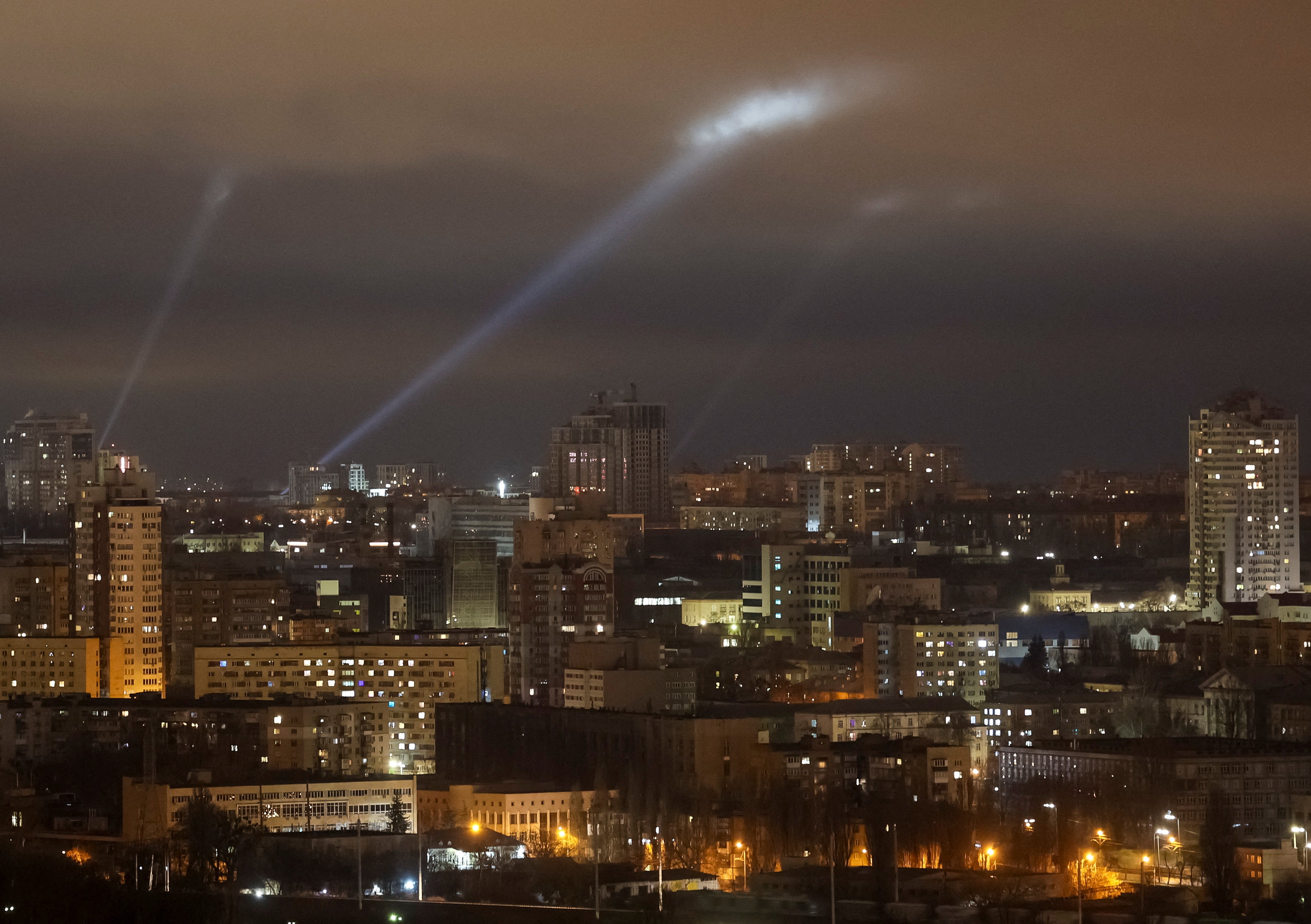
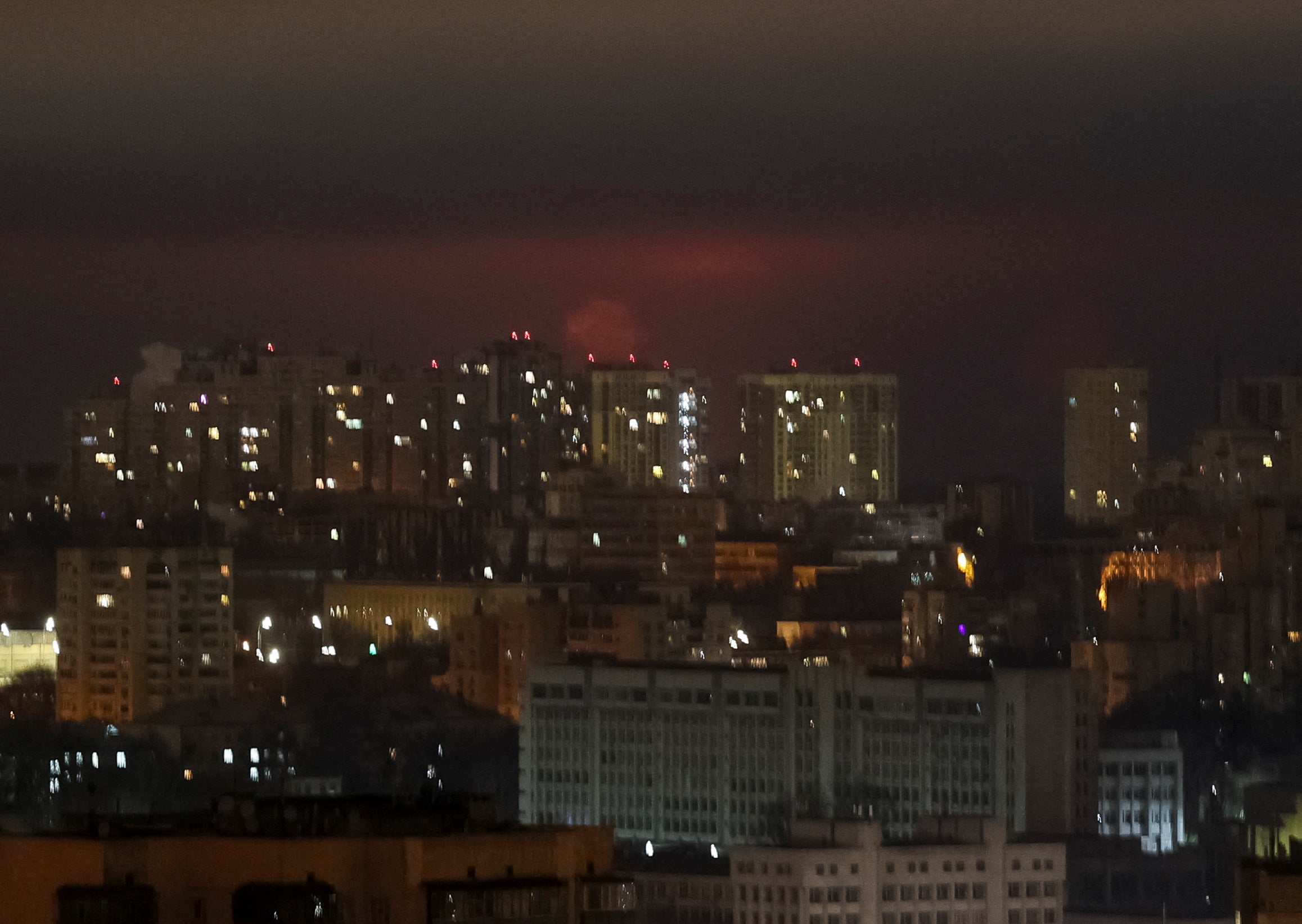
Trump ends programme tracking abducted Ukrainian children, lawmakers say
The Trump administration has slashed a government-funded initiative which tracked the mass deportation of children from Ukraine, Democratic lawmakers have said.
As part of its widespread slashes to foreign aid and US government programmes, the White House has ended the initiative at Yale University’s Humanitarian Research Lab (Yale HRL).
Researchers have lost access to vast amounts of information about some 30,000 children taken from Ukraine, including satellite imagery and other data.
In a letter to secretary of state Marco Rubio and treasury secretary Scott Bessent, the Democratic lawmakers say they believe the data has been “permanently deleted” in a move which would have “devastating consequences”
The Trump administration took “$26 million of US taxpayers money used for war crimes data and threw it into the woodchipper, including the dossiers on all the children”, a person familiar with the programme told Reuters.
“If you wanted to protect President Putin from prosecution, you nuke that thing. And they did it. It’s the final court-admissible version with all the metadata,” the source said.
Two killed and 18 injured in Russian attacks over past day
Two people were killed and 18 were injured in Russian attacks on Ukraine over the past day, regional authorities have said.
A 45-year-old woman was killed and four people were injured in the northeastern Kharkiv region, after a Russian first-person-view drone hit a car on the highway, governor Oleh Syniehubov reported.
An attack on Uhroidy village in the Sumy region killed one person, injured three, and damaged a two-story house, according to the Kyiv Independent.
Further injuries were reported in the eastern Donetsk region, southern Kherson region, and the northern region of Kyiv.
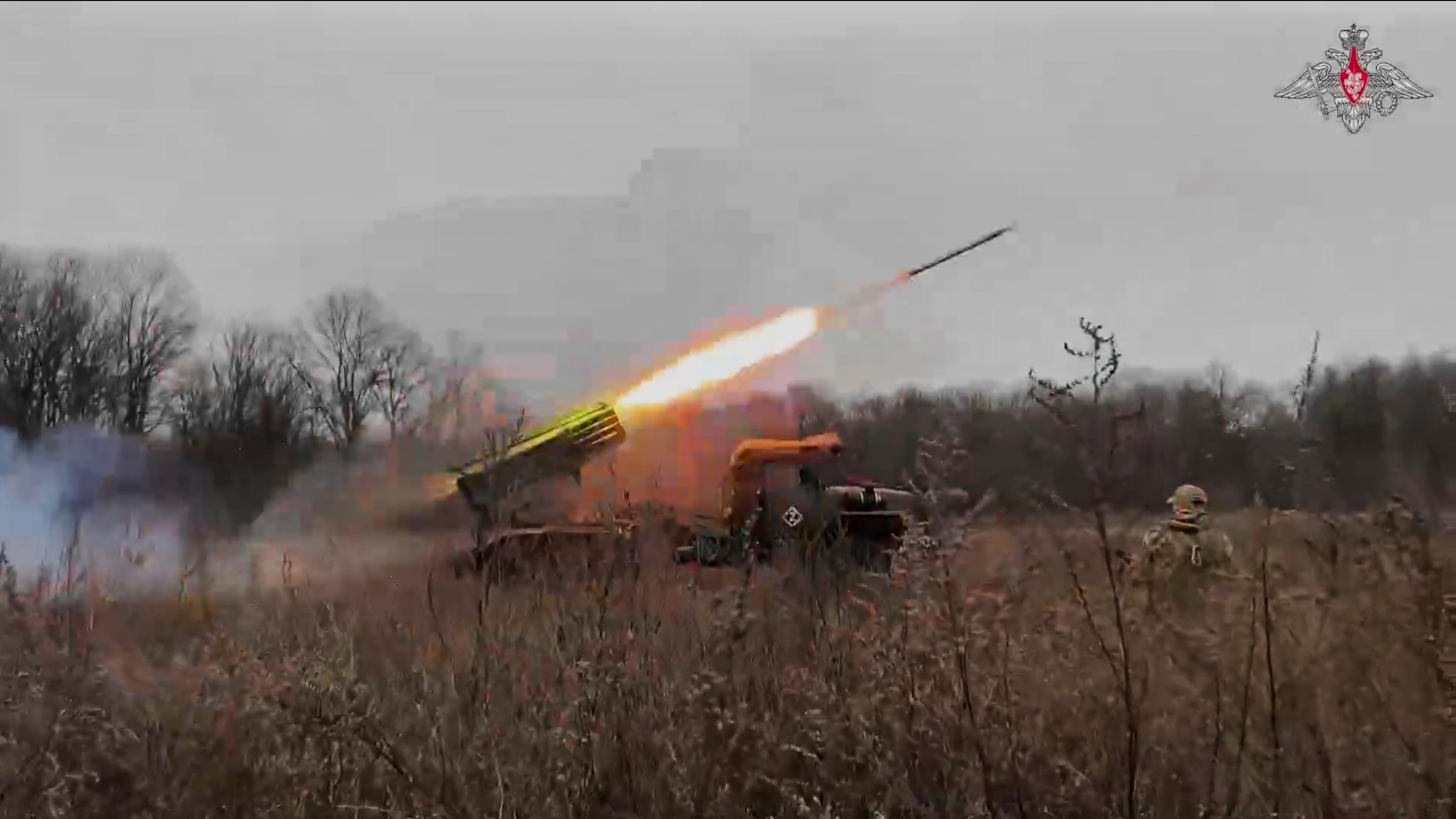
Russian attack injures 60-year-old man in Kyiv region
A 60-year-old man was injured in a Russian drone attack in the Kyiv region overnight.
The attack also damaged several houses in the capital region, governor Mykola Kalashnyk said in a statement early today.
President Volodymyr Zelensky said Russia launched more than 40 drones against Ukraine in the hours following the call between Donald Trump and Vladimir Putin.
Ukrainian military said on Wednesday its air defence units shot down 72 of the 145 drones launched by Russia overnight.
Ukraine left hamstrung by Trump-Putin talks – and can’t agree to their plan
Vladimir Putin and Donald Trump have agreed to shackle Ukraine after hours of talking on the telephone over ceasefire terms, which won’t work but are intended to further divide Ukraine and Europe from the White House.
There has not been a Russian agreement to a ceasefire. But if there is to be one, then all foreign military and intelligence assistance has to stop.
That means the Anglo-French efforts to create a coalition of the willing to back Ukraine and support a long-term peace with military muscle must stop. US assistance must stop, again. All intelligence sharing, by both the US and other Nato members, must also be ended.
Ukraine, Russia has demanded, must be hog-tied, muzzled and blinded before substantial talks can begin.
World affairs editor Sam Kiley writes:
Russia suspends overnight flights near Moscow
Several overnight flights in Russia were suspended from airports in Kazan, Nizhny Novgorod and Nizhnekamsk, all hundreds of kilometres east of Moscow, to “ensure air safety”, said Russia’s aviation watchdog Rosaviatsia.
The agency did not say what the reason was for the suspension of flights, which lasted a couple of hours, but it usually suspends flights when there are reports of drone attacks.
Ukraine shoots down 72 of 145 drones launched by Russia overnight
Ukraine’s air defence units shot down 72 of 145 drones launched by Russia in an overnight attack today, the air force said.
It said 56 drones were lost, in reference to the Ukrainian military using electronic warfare to redirect them.
Source: independent.co.uk
